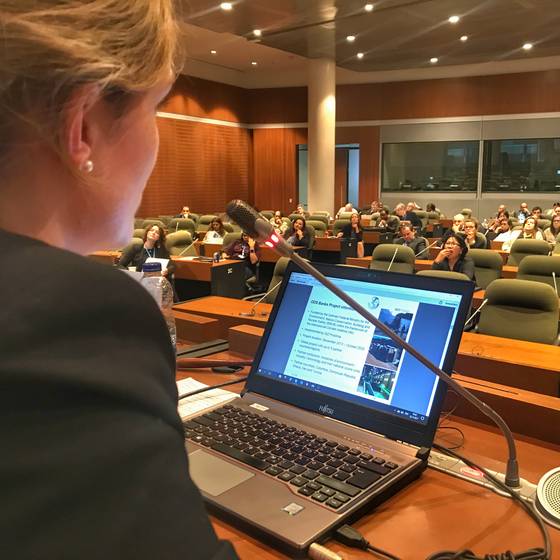Over 60 participants from the policy, private and public sector joined the second GIZ Proklima side event during this years´MOP29 on the climate impact of ODS banks. The event was hosted by the Federal Ministry for the Environment, Nature Conservation, Building and Nuclear Safety (BMUB) via its International Climate Initiative (IKI).
Protecting the environment is a complex, where ozone depleting substances – or ODS – play a crucial role. If released to the atmosphere, those chemical substances deplete the ozone layer and contribute to global warming. With its project "Management and Disposal of Existing Ozone-Depleting Substances in ODS Banks" GIZ Proklima aims at promoting the reduction of emissions from ODS banks in partner countries and raising awareness for the topic.
During the event, a new study (opens in a new window) – published within the project – was presented on the calculation of ODS banks. The paper presents the ODS banks results at national level based on available data from regular reporting to the Ozone Protection Secretariat. This approach is new and shows once again the urgent need to reduce these emissions. Current emissions from so-called ODS Banks correspond to 1.5 CO2eq per year or the annual emissions of 441 coal-fired power plants. The presentation of the side event can be found here (opens in a new window)!

